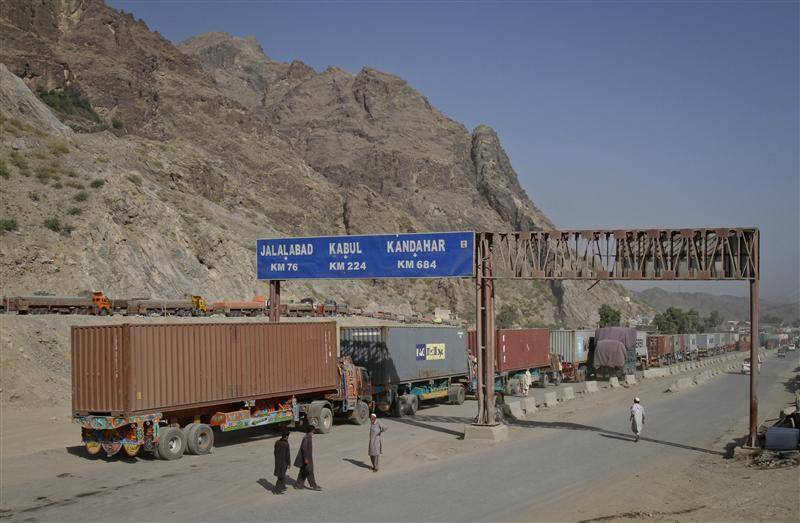The US Ambassador to India, Richard Verma in Delhi, this week while addressing a conference sponsored by the Vivekananad International Foundation mentioned that India is a key strategic partner to the US in Afghanistan. Everyone knows of how India is a key strategic partner to the US in containing China and limiting her influence in Asia, and that the Pakistani leadership has become accustomed to lavish prizes being offered to its neighbours in return for playing a strategic role, but this recent statement will rattle a lot of feathers in the Pakistani leadership given that they have continuously raised concerns over growing Indian involvement in Afghanistan (but with little concern shown by the US). Pakistan has raised concerns over growing levels of Indian investment, opening of consulates and intelligence activity inside Afghanistan and in the tribal areas. With the US now endorsing an Indian role in Afghanistan, this raises questions about what impact the move will have on US-Pakistan foreign relations?
The first question can be answered by looking at how the US has over the years tried to win the confidence of the Indian leadership into playing the giant role that is expected of her in the region; but this winning of hearts and minds does not come without much use of the carrot. President Obama in his recent visit presented much to the Indians, and did a good job if one was to look at his speech and the deals that were done leading up to his visit and after. The US has been aware of the Indian role in Afghanistan, given that they hold real political power in the country, with no nation able to play a formal role without US consent. So why was there a need for Verma to make such a blatant statement, knowing that it would raise concerns across the border in Pakistan. It boils down to not only making more concessions to the Indians but also relating to the internal politics in India, with the Congress party,looking to present consistent hurdles to the BJP, in particular raising concerns over the role that the US is expecting India to play in the future. Now by making such a concession to the Indians and emphasizing an important role for India in Afghanistan, which would give her strategic depth and more points of pressure on Pakistan, the BJP is able to present a strong package to the Indian public despite Congress criticism of her alignment to the US. So, in simple terms, this paving of the way for India to have a key strategic role in Afghanistan can be measured in the context of not only more lavish prizes being presented by the US but also to subdue any criticism towards the BJP that might arise from political opposition, in particular from the Congress quarters.
Now coming to the question of the impact on US-Pakistan foreign relations, are we likely to see a major setback in relations between the two, like the temporary coldness one saw after the Salala incident or after Pakistan’s sovereignty being violated by the US leading to the killing of Osama bin Laden? Naturally one would automatically assume that the Pakistani leadership would be in full rage given that her adversary is being given prize after prize and is squeezing Pakistan from both the Eastern and Western border, with its existence in Afghanistan being formalized by the US. However, despite protest from the Pakistani leadership to the US over growing Indian influence in Afghanistan, there has not been any serious action taken by the US to curtail this growing concern in Pakistan. A key reason playing in to this, is that the US is aware that the Pakistani leadership does not have the political backbone to take any serious action and the last 14 years have proven this, with major assaults on Pakistan’s sovereignty by the US only for a verbal slap on the wrist by the establishment and no firm political and diplomatic action taken. The establishment is to blame for the US having this courage to give a more open role to India in Afghanistan, as they have faced no resistance whatsoever allowing the US to execute her strategic objectives with ease, knowing fully well that the Pakistani establishment is not going to do anything drastic. I think this line of argument might have won many in the past, but with growing political awareness in Pakistan, and with more people realizing that Pakistan has been the real loser in this War on Terror. The establishment is in a tight spot, as the US makes increasing moves across the border to put in place the pieces in her wider jigsaw while Pakistan seems to be getting the raw end of the deal, with not only suffering from internal chaos over the last 14 years but now her grave concern of India now being given strategic partner recognition in Afghanistan- with little the present establishment can do or is willing to do to change the fortunes of Pakistan.
Friday, April 19, 2024
India in Afghanistan

The writer is an assistant professor of political science at LUMS. Follow him on Twitter
Hafiz Naeem takes oath as JI chief, announces anti-government movement
11:39 AM | April 19, 2024
Karachi: AVLC hands over snatched, stolen cars to owners
April 19, 2024
Bid to smuggle Siberian cranes foiled, accused held
April 19, 2024
Tajir Dost app: Traders show lack of interest in registration process
11:09 AM | April 19, 2024
Three abducted people rescued in police operation
April 19, 2024
A Tense Neighbourhood
April 19, 2024
Dubai Underwater
April 19, 2024
X Debate Continues
April 19, 2024
Hepatitis Challenge
April 18, 2024
IMF Predictions
April 18, 2024
Kite tragedy
April 19, 2024
Discipline dilemma
April 19, 2024
Urgent plea
April 19, 2024
Justice denied
April 18, 2024
AI dilemmas unveiled
April 18, 2024
ePaper - Nawaiwaqt
Advertisement
Nawaiwaqt Group | Copyright © 2024





